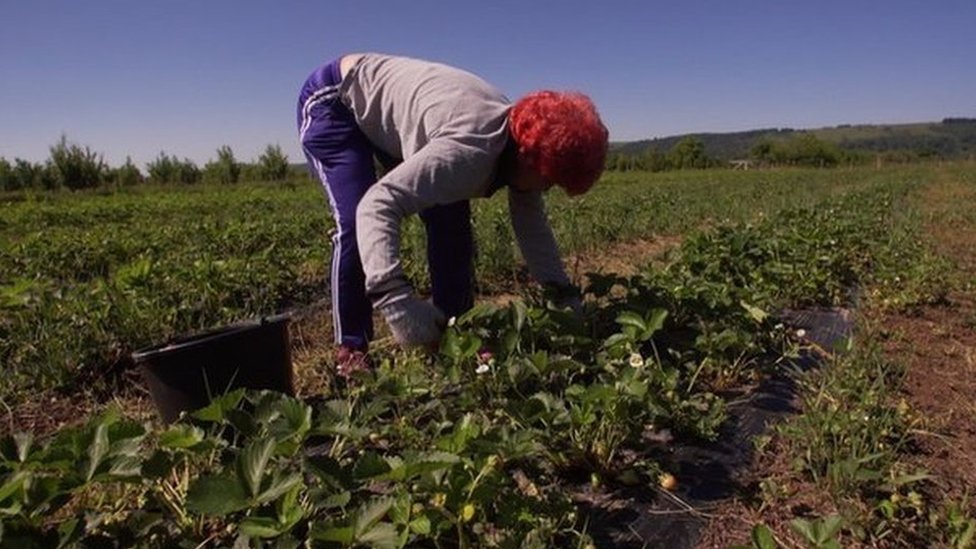The Trump administration’s aggressive stance on immigration is creating serious problems for America’s farming sector, making it increasingly difficult to find seasonal workers — and, according to federal warnings, putting the nation’s food supply chain at real risk. But don’t just take anyone’s word for it. The administration’s own agencies are saying it.
Documents submitted earlier this month to the Federal Register by the Department of Labor acknowledge a “current and imminent labor shortage” across U.S. farms that “presents a sufficient risk of supply shock-induced food shortages.” The filings point to the administration’s crackdown on undocumented laborers — individuals who “previously cycled in and out of the U.S. through a porous border” but are now being blocked or choosing not to attempt entry at all.
The absence of these seasonal, undocumented laborers could deliver a harsh blow to American agriculture. According to one cited study, a 10 percent drop in the farm labor force would cause a 4.2 percent reduction in output and a 5.5 percent decrease in revenue. The Labor Department warns, “Given that approximately 42 percent of the U.S. crop workforce are unable to enter the country, potentially subject to removal or voluntarily leaving the labor force, these impacts will likely be dramatically higher.” The report further notes that these “significant economic impacts not only create tangible and imminent economic harms, but they structurally disrupt the ordinary operations of the U.S. agricultural sector, resulting in shortages of agricultural commodities that cannot be supplemented with imports in the near-term.”
These Federal Register documents lay out a rare and candid acknowledgment of the tradeoffs that the Trump administration has avoided addressing in public. For instance, in July, Agriculture Secretary Brooke Rollins claimed mass deportations would “move the workforce towards automation and 100 percent American participation.” She also suggested that able-bodied adults receiving Medicaid “should look for agricultural jobs vacated by undocumented workers.”
However, that’s far from reality. Data from the Bureau of Labor Statistics shows the nation’s agricultural labor force shrank by about 80,000 workers between January and August.
Farmers are already feeling the impact. “People don’t understand that if we don’t get more labor, our cows don’t get milked and our crops don’t get picked,” Tim Wood, a dairy farmer from Pennsylvania, told Politico last month.
The immigration crackdown has also affected the H-2A visa program, which allows foreign nationals to work in U.S. agriculture for up to one year. Florida farmer Lee Wroten told a local Fox affiliate that fewer legal immigrants are showing up for work — partly because “they are ‘freaked’ out by ICE raids that have indiscriminately targeted legal and undocumented immigrants alike.”
As for replacing that labor with American workers, Wroten says it’s simply unrealistic. “It’s hard work—it’s hot, sweaty, not sexy, and most Americans don’t want to do that kind of work.”
The Department of Labor’s own filing agrees with that assessment. “The Department does not believe American workers currently unemployed or marginally employed will make themselves readily available in sufficient numbers to replace large numbers of aliens no longer entering the country, voluntarily leaving, or choosing to exit the labor force due to the self-perceived potential for their removal based on their illegal entry and status,” the report states. It further concludes, “The available data strongly demonstrates a persistent and systemic lack of sufficient numbers of qualified, eligible, and interested American workers to perform the kinds of work that agricultural employers demand.”
Expanding and streamlining the H-2A visa program could help resolve this deepening agricultural labor crisis — because simplifying legal pathways for foreign workers is one of the most effective ways to reduce illegal immigration. Yet, as Kelly Lester wrote in Reason earlier this year, the H-2A system “is riddled with costs, bureaucracy, and inefficiency.” As a result, “American farmers are being crushed not only by worker shortages but by a broken guest worker system that cannot meet their needs.”
Which is true? Either Trump’s Labor Department actually believes that immigration enforcement is threatening food security, or they are pretending the threat is real in order to crush wages for farm workers.https://t.co/z56HlNTd7C
— United Farm Workers (@UFWupdates) October 8, 2025
Instead of first modernizing the guest worker program, the Trump administration chose to tighten the border — a move that’s now creating ripple effects across the economy. The consequences are becoming clear: with fewer hands in the fields, America’s food supply chain is beginning to strain under its own weight.



